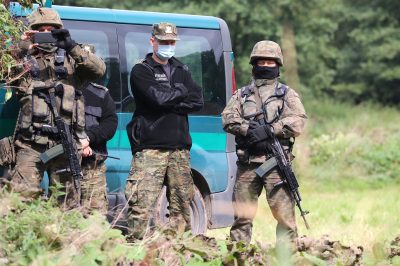The HFHR has intervened in the case of death of the woman who fell out of a window after being arrested by the Internal Security Agency.
Liability for death during law enforcement operations
According to press reports, ISA operatives raided the apartment of a Vietnamese national on Wednesday 23 May. The woman fell out of a window moments after being placed under arrest. At the time of the fatal incident, she was already in the custody of law enforcement officials and, as two independent sources confirm, was handcuffed.
The HFHR became involved in this case and sent a letter to the Regional Prosecutor’s Office in Warsaw, referring to the guarantees of the right to life included in the European Convention on Human Rights. “Upon making an arrest, state officials assume responsibility for the life and physical integrity of the arrested person. Article 2 of the Convention obliges the state to investigate and resolve each and every case of a loss of life that clearly does not result from natural causes”, says Piotr Kubaszewski, a member of the Foundation’s legal team. “Each time a person whose liberty is anyway restricted dies, the state is obliged to investigate if its officials are or are not responsible. In our intervention we ask the prosecutor’s office to provide information about the investigation into the arrestee’s death”, says HFHR’s lawyer Julia Gerlich.
Presumption of innocence violated
There is another worrying aspect of the discussed case, namely the content of the relevant press release of the National Prosecutor’s Office, according to which the Regional Prosecutor’s Office in Warsaw is currently investigating the circumstances surrounding the death of a Vietnamese national who “was a member of an international organised crime group”. Foundation considers such a wording of a factual description impossible to reconcile with the principle of the presumption of innocence expressed both in national and international law. “It must be clearly emphasised that criminal justice bodies investigation a case may not arbitrarily judge if a person has or has not committed an offence. This is a matter for a court to decide in a final ruling” Piotr Kubaszewski explains.


